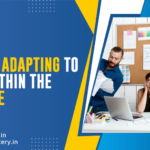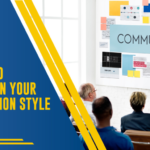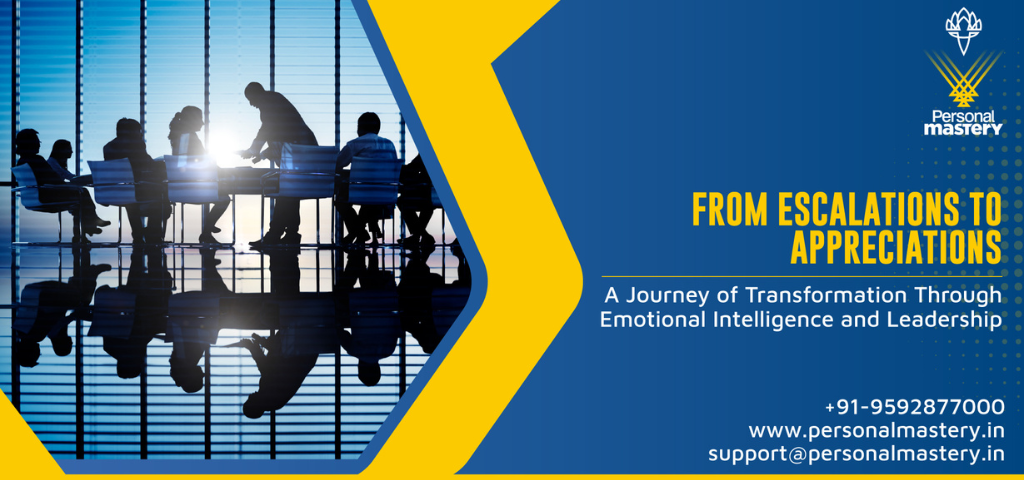
Difficulty Adapting to Change Within the Workplace
January 23, 2025
How to Build Confidence in Your Communication Style
January 28, 2025In the competitive corporate landscape of Mumbai, two things were considered to be cramped-tight: deadlines and expectations. Raghav Mehta was acclaimed for his exceptional technical abilities. His analytical and problem-solving talents consistently placed him among the top 20% of performers in the company. Yet there was a whole other story that lay below the surface, as an extremely serious issue threatening to derail his potential: temper problems and behavioral issues.
His subordinates often cautious around him. A misstep would surely invite the wrath of his difficult temperament. Clients also were not free of his treatment at times, embroiling these conversations into uncomfortable escalations. It was during one such escalation that his manager popped in for an honest conversation: “Raghav, you are a technical whiz,” began his manager, “but we are getting complaints about how you treat others. If you do not stop right now, you will compromise not only the client relationships but also, your career here.”
The alarm bell had rung aloud and clear.
Why Raghav Chose to Enroll in the Emotional Intelligence and Leadership Program
Around the same time, Raghav noticed a growing trend in the corporate world: the buzz around emotional intelligence (EI) and leadership skills. Intrigued but skeptical, he decided to explore options and stumbled upon a course that promised to build these skills through proven tools and techniques.
At the time, Raghav was driven to enroll for circumstantial reasons. He wished to tick a box, retain relevance, and perhaps get his tattered reputation back on track. But what he did not realize was the extent to which he would be touched profoundly and personally with a career shaping experience.
The Eye-Opening Journey Begins
Raghav was amazed, right from the first session, by the depth and practicality of the content presented. The program was not about long, jargon-laden lectures. Instead, it was designed to be an immersive experience to help shift one’s mindset. One of their first exercises was self-awareness journaling. Raghav was invited to write down situations that made him feel angry and frustrated and to describe the triggers for this feeling and his response to it.
“It was like looking at a mirror of my behavior,” he explains. “I realized how frequently I reacted rather impulsively without thinking of the many things at hand.”
Yet another learning touch-point included the module on empathy. Raghav put himself into the shoes of his clients and colleagues in role-playing scenarios. He practiced empathic listening that, he found, had skirted his attention while focusing on his perspective.
Tools and Techniques That Changed Raghav’s Life
The course introduced Raghav to a range of tools and techniques that became instrumental in his transformation:
- The Pause Technique: Whenever Raghav felt anger bubbling up, he practiced pausing for a few seconds to breathe deeply and assess the situation rationally. This simple yet powerful habit drastically reduced his impulsive reactions.
- Empathy Mapping: This tool helped him visualize and understand the emotions, needs, and pain points of others. It became a cornerstone of his improved client interactions.
- Feedback Loops: Raghav learned to seek constructive feedback from peers and clients regularly. This not only helped him identify areas for improvement but also built trust and openness in his relationships.
- Mindfulness Practices: Guided mindfulness exercises helped Raghav stay present during high-pressure situations. Over time, this practice enhanced his focus and reduced stress.
- Assertive Communication Framework: The course taught him how to express his needs and concerns without coming across as aggressive. Using “I feel” statements instead of accusatory language became a game-changer in his conversations.
- Leadership Vision Board: As part of the leadership modules, Raghav created a vision board outlining his values, goals, and leadership aspirations. This exercise clarified his purpose and motivated him to lead by example.
The Transformation Unfolds
Raghav’s use of this tool did not go unnoticed by himself and others around him. In one case, the technical glitch that quite nearly derailed an important project during a pivotal meeting with a client had him maintain his equanimity.Instead of going defensive, he listened to the client’s complaints and understood their Strong feelings either reasonably or extremely. He resumed his discussion with a solution to the problem. By the end of the meeting, the client interested in escalating the case commended Raghav for his poise and problem-solving ability.
Raghav’s dreams began to spread in the office. Clients who used to avoid him started asking for his input on their projects. Colleagues who had distanced themselves from him began consulting him for advice. Even his manager remarked on the remarkable level of ultimate morale and productivity in his team.
The Ripple Effect
Raghav’s newfound emotional intelligence not only aided his career; it also enriched his personal life. He became a more patient and understanding man with regard to his family and friends and added value to his relationships. In retrospect, he says, “For me, emotional intelligence used to be a corporate fad. It is more of a life skill that everyone should cultivate.”
Raghav’s Testimonial for the Course
Raghav closed with a terrific piece of feedback at the end of the program:
“It’s been a life-changing course for me that has given me much more than the technical capacity or authority to lead-it’s all about connecting with people, understanding them, and inspiring them. This toolkit has dramatically altered my career and definitely improved me as a person. Take the plunge if you’re sitting on the fence about enrolling; you will surely not regret it!
The Bigger Picture
Raghav’s journey illustrates the power of emotional intelligence and leadership coaching. In a world where technical skills may only carry you so far, it is emotional and relational dexterity that marks off great professionals from the rest.
Therefore, the next time you are faced with challenges on the personal or professional front, ask yourself: ‘What would my more emotionally intelligent self do?’ And, remember, the journey starts with one small step.
Contact Us
Phone: +91-9592877000
Email Id: support@personalmastery.in
Address: #748, Sector 9, Panchkula (Chandigarh), Haryana (INDIA) – 134113


